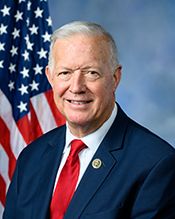0
0
0
Mission not Emissions Act
12/15/2023, 3:58 PM
Summary of Bill HR 3358
Bill 118 hr 3358, also known as the Mission not Emissions Act, is a piece of legislation introduced in the US Congress with the goal of addressing climate change and promoting clean energy initiatives. The bill aims to reduce greenhouse gas emissions by setting targets for the federal government to achieve net-zero emissions by the year 2050.
One of the key provisions of the Mission not Emissions Act is the establishment of a National Climate Bank, which would provide funding for projects that reduce emissions and promote renewable energy sources. This bank would be tasked with investing in clean energy technologies and infrastructure, as well as supporting communities that are disproportionately affected by climate change.
Additionally, the bill includes measures to incentivize the adoption of electric vehicles, improve energy efficiency in buildings, and invest in renewable energy research and development. It also calls for the creation of a Climate Corps program, which would provide opportunities for young people to work on climate-related projects and gain valuable experience in the clean energy sector. Overall, the Mission not Emissions Act represents a comprehensive approach to addressing climate change and transitioning to a more sustainable energy future. Supporters of the bill argue that it is necessary to take bold action to combat the effects of climate change, while opponents may raise concerns about the potential costs and regulatory burdens associated with the proposed measures.
One of the key provisions of the Mission not Emissions Act is the establishment of a National Climate Bank, which would provide funding for projects that reduce emissions and promote renewable energy sources. This bank would be tasked with investing in clean energy technologies and infrastructure, as well as supporting communities that are disproportionately affected by climate change.
Additionally, the bill includes measures to incentivize the adoption of electric vehicles, improve energy efficiency in buildings, and invest in renewable energy research and development. It also calls for the creation of a Climate Corps program, which would provide opportunities for young people to work on climate-related projects and gain valuable experience in the clean energy sector. Overall, the Mission not Emissions Act represents a comprehensive approach to addressing climate change and transitioning to a more sustainable energy future. Supporters of the bill argue that it is necessary to take bold action to combat the effects of climate change, while opponents may raise concerns about the potential costs and regulatory burdens associated with the proposed measures.
Congressional Summary of HR 3358
Mission not Emissions Act
This bill prohibits any requirement for recipients of federal contracts to (1) disclose greenhouse gas emissions and climate-related financial risk, (2) report on greenhouse gas emissions, or (3) develop and submit greenhouse gas emissions reduction targets for validation by nongovernmental organizations.
Read the Full Bill
Current Status of Bill HR 3358
Bill HR 3358 is currently in the status of Bill Introduced since May 16, 2023. Bill HR 3358 was introduced during Congress 118 and was introduced to the House on May 16, 2023. Bill HR 3358's most recent activity was Ordered to be Reported in the Nature of a Substitute (Amended) by the Yeas and Nays: 22 - 20. as of July 12, 2023
Bipartisan Support of Bill HR 3358
Total Number of Sponsors
1Democrat Sponsors
0Republican Sponsors
1Unaffiliated Sponsors
0Total Number of Cosponsors
46Democrat Cosponsors
0Republican Cosponsors
46Unaffiliated Cosponsors
0Policy Area and Potential Impact of Bill HR 3358
Primary Policy Focus
EnergyPotential Impact Areas
- Air quality
- Climate change and greenhouse gases
- Environmental assessment, monitoring, research
- Public contracts and procurement
Alternate Title(s) of Bill HR 3358
Mission not Emissions Act
Mission not Emissions Act
To prohibit any requirement for recipients of Federal contracts to disclose greenhouse gas emissions and climate-related financial risk, and for other purposes.
Comments
Sponsors and Cosponsors of HR 3358
Latest Bills
Providing amounts for the expenses of the Committee on Ethics in the One Hundred Nineteenth Congress.
Bill HRES 131December 12, 2025
Providing for congressional disapproval under chapter 8 of title 5, United States Code, of the rule submitted by the Bureau of Land Management relating to "Central Yukon Record of Decision and Approved Resource Management Plan".
Bill HJRES 106December 12, 2025
Expressing the sense of the House of Representatives in condemning the Government of the People's Republic of China for its harassment and efforts to intimidate American citizens and other individuals on United States soil with the goal of suppressing speech and narratives the People's Republic of China finds unwelcome.
Bill HRES 130December 12, 2025
Providing for congressional disapproval under chapter 8 of title 5, United States Code, of the rule submitted by the Bureau of Land Management relating to "North Dakota Field Office Record of Decision and Approved Resource Management Plan".
Bill HJRES 105December 12, 2025
Providing for congressional disapproval under chapter 8 of title 5, United States Code, of the rule submitted by the Bureau of Land Management relating to "Miles City Field Office Record of Decision and Approved Resource Management Plan Amendment".
Bill HJRES 104December 12, 2025
Providing amounts for the expenses of the Select Committee on the Strategic Competition Between the United States and the Chinese Communist Party in the One Hundred Nineteenth Congress.
Bill HRES 104December 12, 2025
Critical Access for Veterans Care Act
Bill S 1868December 12, 2025
OATH Act of 2025
Bill S 1665December 12, 2025
A bill to extend the authority for modifications to the Second Division Memorial in the District of Columbia.
Bill S 1353December 12, 2025
Saving Our Veterans Lives Act of 2025
Bill S 926December 12, 2025
National Defense Authorization Act for Fiscal Year 2024
Bill HR 2670March 13, 2024





